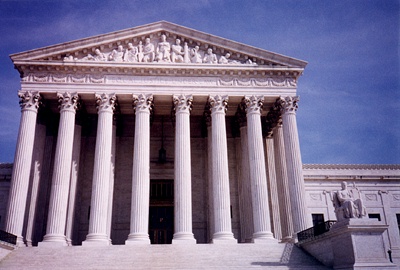All Nonfiction
- Bullying
- Books
- Academic
- Author Interviews
- Celebrity interviews
- College Articles
- College Essays
- Educator of the Year
- Heroes
- Interviews
- Memoir
- Personal Experience
- Sports
- Travel & Culture
All Opinions
- Bullying
- Current Events / Politics
- Discrimination
- Drugs / Alcohol / Smoking
- Entertainment / Celebrities
- Environment
- Love / Relationships
- Movies / Music / TV
- Pop Culture / Trends
- School / College
- Social Issues / Civics
- Spirituality / Religion
- Sports / Hobbies
All Hot Topics
- Bullying
- Community Service
- Environment
- Health
- Letters to the Editor
- Pride & Prejudice
- What Matters
- Back
Summer Guide
- Program Links
- Program Reviews
- Back
College Guide
- College Links
- College Reviews
- College Essays
- College Articles
- Back
Why Teen Court Works
At our school, when a student gets a write-up for behavior, we have an alternative to traditional consequences. This is because we started a Teen Court. There is a student judge, student bailiff, student jurors, and a student youth advocate. If a student at our school receives a disciplinary write-up, they have a chance to get their case heard in front of a group of their peers. They have to admit that they did what the write up said they did. They are also allowed to have a youth advocate so that they don’t have to be alone.
Here’s how it works: First the bailiff calls the court in then the judge tells everyone what is recommended from them such as being quiet while court has started and turning off their phones.Then the bailiff reads the write up that was given to the respondent (student) and then reads the student’s statement. After that the judge asks the student’s advocate (lawyer) to give a statement about the student. The advocate might talk about how the kid is always a good kid, that this is their first write up of the year, or that out of all of their write ups this is the only one about bullying.
When they are done the judge will ask the respondent if they have any further information to give--if they do then they would say it. After that the judge tells the jurors to ask the respondent questions (not comments) and the student will answer them.
Once they are done then the judge would ask the bailiff to escort the student and their advocate to the waiting area so the jurors can discuss what the consequence would be. The jurors have to know that they are trying to help the kid and not punish them.
Some of the consequences are serving on the jury one day or writing a page on bullying (if they got the write up for bullying). Once they are done the judge will ask the bailiff to escort the student and their advocate back into the room and the jurors will tell the student what they have to do. If they don’t do these tasks, their write up will be sent back to an administrator. And one of their consequences from the administrator might be serving detention or ISS.
Youth Court is better than administrator consequences. For example, the kids won’t get so upset for getting a write up. If they do what youth court tells them to do then the write up will be off their record. Also, kids can basically have a better way to fix what they have done. The students would have to do stuff that will help them and not detention or ISS.
Other schools should start youth court. Not only will administrators not have to deal with a bunch of write ups, it’s an experience to see what kids can do to fix what they have done.

Similar Articles
JOIN THE DISCUSSION
This article has 0 comments.

I have been involved with youth court this semester and it helps the students at my school also its a good idea.